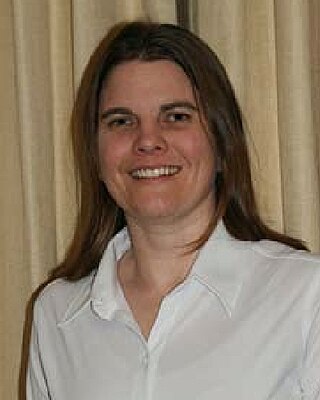A food craving is an intense desire to consume a specific food, and is different from normal hunger. It may or may not be related to specific hunger, the drive to consume particular nutrients that is well-studied in animals. In studies of food cravings, chocolate and chocolate confectioneries almost always top the list of foods people say they crave; this craving is referred to as chocoholism. The craving of non-food items as food is called pica.

Upcycling, also known as creative reuse, is the process of transforming by-products, waste materials, useless, or unwanted products into new materials or products perceived to be of greater quality, such as artistic value or environmental value.

A sustainable food system is a type of food system that provides healthy food to people and creates sustainable environmental, economic, and social systems that surround food. Sustainable food systems start with the development of sustainable agricultural practices, development of more sustainable food distribution systems, creation of sustainable diets, and reduction of food waste throughout the system. Sustainable food systems have been argued to be central to many or all 17 Sustainable Development Goals.

Micro-sustainability is the portion of sustainability centered around small scale environmental measures that ultimately affect the environment through a larger cumulative impact. Micro-sustainability centers on individual efforts, behavior modification, education and creating attitudinal changes, which result in an environmentally conscious individual. Micro-sustainability encourages sustainable changes through "change agents"—individuals who foster positive environmental action locally and inside their sphere of influence. Examples of micro-sustainability include recycling, power saving by turning off unused lights, programming thermostats for efficient use of energy, reducing water usage, changing commuting habits to use less fossil fuels or modifying buying habits to reduce consumption and waste. The emphasis of micro-sustainability is on an individual's actions, rather than organizational or institutional practices at the systemic level. These small local level actions have immediate community benefits if undertaken on a widespread scale and if imitated, they can have a cumulative broad impact.
The psychology of eating meat is an area of study seeking to illuminate the confluence of morality, emotions, cognition, and personality characteristics in the phenomenon of the consumption of meat. Research into the psychological and cultural factors of meat-eating suggests correlations with masculinity, support for hierarchical values, and reduced openness to experience. Because meat eating is widely practiced but is sometimes associated with ambivalence, it has been used as a case study in moral psychology to illustrate theories of cognitive dissonance and moral disengagement. Research into the consumer psychology of meat is relevant both to meat industry marketing and to advocates of reduced meat consumption.
Alison Ruth Mercer is a New Zealand zoologist based at the University of Otago, with a particular interest in the brain physiology of bees. She was elected a member of the National Academy of Sciences in 2022.
Indrawati Oey is a New Zealand food scientist, full professor at the University of Otago.
Caroline Christine Horwath is a New Zealand nutritional scientist and professor in the Department of Human Nutrition at the University of Otago.
Food psychology is the psychological study of how people choose the food they eat, along with food and eating behaviors. Food psychology is an applied psychology, using existing psychological methods and findings to understand food choice and eating behaviors. Factors studied by food psychology include food cravings, sensory experiences of food, perceptions of food security and food safety, price, available product information such as nutrition labeling and the purchasing environment. Food psychology also encompasses broader sociocultural factors such as cultural perspectives on food, public awareness of "what constitutes a sustainable diet", and food marketing including "food fraud" where ingredients are intentionally motivated for economic gain as opposed to nutritional value. These factors are considered to interact with each other along with an individual's history of food choices to form new food choices and eating behaviors.

Tracy Berno is a New Zealand academic, specialising in cross-cultural psychology and food. As of 2022 she is a full professor of the culinary arts in the School of Hospitality and Tourism at Auckland University of Technology.
The Food Cravings Questionnaires (FCQs) are among the most widely used self-report questionnaires for measuring food craving. They were developed by Antonio Cepeda-Benito and colleagues in 2000. For the 39-item trait version (FCQ-T), respondents indicate how frequently each statement is true for them in general on a six-point scale with 1 = never/not applicable, 2 = rarely, 3 = sometimes, 4 = often, 5 = usually, and 6 = always. For the 15-item state version (FCQ-S), respondents indicate the extent to which they agree with each statement right now, at this very moment, on a five-point scale with 1 = strongly disagree, 2 = disagree, 3 = neutral, 4 = agree, 5 = strongly agree.
Siew-Young Quek is a New Zealand academic and is a full professor at the University of Auckland, specialising in bioactive and functional food ingredients, lipid science and food processing.
The New Zealand Institute of Food Science and Technology (NZIFST) is a professional society for food scientists and technologists in industry and academia in New Zealand.

Lisa Anne Te Morenga is a New Zealand Maori academic, and she is a full professor at the Research Centre for Hauora and Health at Massey University. Her research focuses on nutrition and Māori health, especially in relation to dietary interventions to prevent metabolic disease.

Nitha Palakshappa, also known as Nitha Dolli, is a New Zealand marketing academic, and is a full professor at Massey University, specialising in sustainability and marketing in the fashion and food sectors.
Maree Thyne is a New Zealand academic, and is a full professor of marketing at the University of Otago, specialising in consumer behaviour, particularly cruise tourism.
Trisia Angela Farrelly is a New Zealand social anthropologist, and is a full professor at Massey University, specialising in plastic reduction and pollution, and campaigning against excessive and hazardous plastics production.

Kathryn Louise Beck is a New Zealand academic, a registered dietitian, and is a full professor at Massey University, specialising in dietary assessment, sustainable nutrition, and iron deficiency in young women and sportspeople.
Rachel A. Spronken-Smith is a New Zealand professor of higher education and geographer at the University of Otago. She has won a number of awards for her teaching, and consults on curriculum design in higher education.

Cathryn Anne Conlon is a New Zealand academic, and is a full professor at Massey University, specialising in maternal and early-life nutrition.







